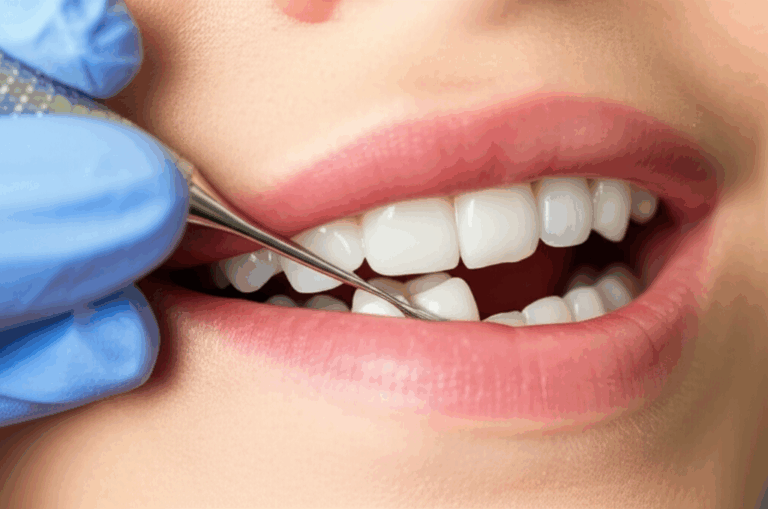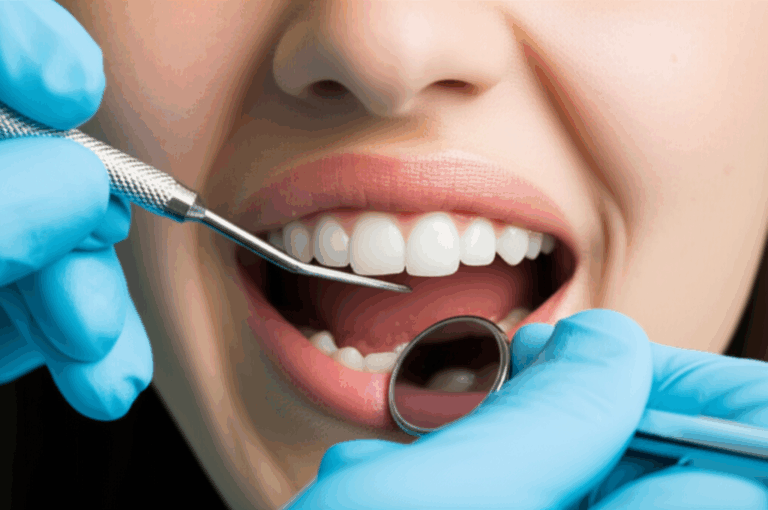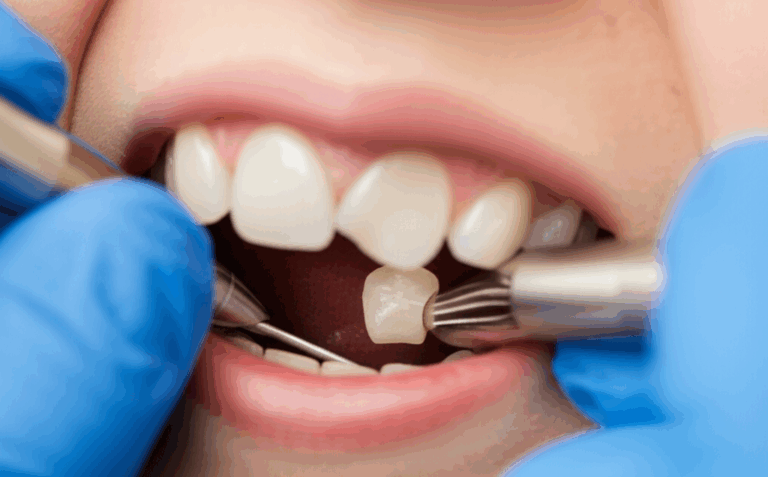
Can a Dentist Become a Neurosurgeon? Your Honest, Complete Guide to an Extreme Career Change
If you’re a dentist—or just someone curious—wondering, “Can a dentist become a neurosurgeon?” you’re not alone. Maybe you’re thinking about a big career change. Maybe you just want to know what’s possible. Either way, this guide is here to answer your questions with honesty, kindness, and simple facts about what it’s really like. Let’s look into what it takes, clear up some common myths, and lay out the step-by-step path (including all the tough spots) for any dentist who dreams of becoming a brain surgeon.
In This Article
- The Straight Answer: Can a Dentist Become a Neurosurgeon?
- Why Are Dentistry and Neurosurgery So Different?
- The Step-by-Step Path: From Dental School to the OR
- The Real-World Hurdles (And Why So Few Take This Path)
- Are There Simpler Surgical Paths for Dentists?
- Who Would Attempt This? Honest Realities and Ideal Candidates
- Your Key Takeaways: What You Need to Know Before Taking the Leap
The Straight Answer: Can a Dentist Become a Neurosurgeon?
Let’s not make it complicated. The answer is yes—a dentist can become a neurosurgeon. But here’s what you need to know: it’s very rare, very hard, and takes a lot of time. This isn’t just changing jobs or taking a short class. If you want to go from dentistry (DDS or DMD) to being able to say you’re a neurosurgeon (MD or DO), you have to almost start your schooling—and your career—over again from the beginning.
So, if you thought you could just brush off your old books and jump right from fixing teeth to operating on brains, it’s not that simple.
But if you’re someone who likes big challenges, wants to do complex surgery, and is ready to spend more than ten years retraining for a whole new job, keep reading. This journey takes a lot of bravery, patience, and soul searching.
Why Are Dentistry and Neurosurgery So Different?
Even though dentists and neurosurgeons both wear scrubs and use steady hands, their jobs are as different as fixing a tooth and fixing a brain.
1. Your Degree: DDS/DMD vs. MD/DO
- Dentistry: You earn a Doctor of Dental Surgery (DDS) or Doctor of Dental Medicine (DMD) degree. You learn all about teeth, gums, jaws, and the mouth.
- Medicine: Neurosurgeons hold a Doctor of Medicine (MD) or Doctor of Osteopathic Medicine (DO). They learn about the whole body, especially the brain, back, nerves, and how they work.
2. The Training Path
- Dental school focuses on mouth health, teeth, gums, and helping people with dental problems.
- Medical school (for neurosurgeons) covers every body system, with a lot of focus on the brain, nerves, back, and related illnesses.
3. Licensing and What You’re Allowed To Do
- Dentists get a license after passing dental tests and can work on the mouth. There are dental ceramics lab and surgery options, but all are mouth-related.
- Neurosurgeons need to pass medical exams and finish a tough training program in brain and back surgery.
Think of dentistry as fixing a city’s roads and tunnels, while neurosurgery is like fixing the city’s wired network. Both important, both tricky, but about different things.
The Step-by-Step Path: From Dental School to the Neurosurgery OR
Ready for the whole story? Here’s what you’d really need to do to go from being a dentist to working as a neurosurgeon.
1. Making Sure You’re Ready for Medical School
Even if you have a DDS or DMD, medical schools want you to have:
- Undergrad science classes: Biology, chemistry (regular and organic), physics, math—basic science classes all pre-med students do.
- MCAT test prep: The MCAT is not like the dental test. It covers science plus reading, psychology, and social science. Unless you already did pre-med in college, you may need more classes.
- Doctors’ office or lab experience: Med schools are competitive. Volunteering, shadowing doctors, doing medical research, and good recommendations all help you get picked.
- A strong personal story: Schools will want to know: Why are you switching? Why neurosurgery? Why now?
Important: There are no quick ways. Dental school does not count as a shortcut to skip or replace medical school in the U.S., UK, or almost any country.
2. Apply and Finish Medical School
This is a big step.
- Applying: You’ll need to send transcripts, MCAT scores, have interviews, letters, and more. It’s harder if you’re not a recent college grad.
- Tuition and Time: Medical school is usually four years and costs a lot (often $40,000–$80,000 a year). Most people finish in their mid-to-late 20s; if you start late, you’ll be older.
- What you study: Two years in classes (learning about all body parts, medicine, drugs, diseases), two years seeing real patients in hospitals and clinics.
Truth: Medical school takes just as much work as dental school—yes, even if you’re already a dentist.
3. Getting Into a Neurosurgery Training Program
Now it gets even harder.
- The Match: Neurosurgery is one of the toughest fields to get into. Many want it, few get chosen. And if you’re older or already had another career, it may be even harder to get picked.
- How Long: Neurosurgery training usually takes 7 years. You’ll be working nonstop during this.
- Daily life: You’ll be in surgery, in clinics, and on call at night and weekends. If you have a family, it’s a big deal.
- Extra Training: You may want more training in certain areas, which can take more years.
4. Medical Tests and Getting a License
- Tests: You’ll take national medical tests during school and training.
- License: After training, you’ll get a license from your state to work as a doctor.
- Board Certification: You must also pass a special test to call yourself a neurosurgeon.
5. Optional: More Special Training
If you want to only do certain surgeries (like kids’ brain tumors), more training (1–2 years) could be needed.
Finally—after all this—you work as a full neurosurgeon. If you started dental school at 22, practiced for a few years, and then went to med school… you might be in your early-to-mid 40s before you’re finished.
The Real-World Hurdles (And Why So Few Dentists Become Neurosurgeons)
You’re probably thinking, “Wow, that’s a lot.” And yes, it is. Here’s what you’re really facing.
1. Time
- Total Years After College: Can be up to 15 years—after getting your undergrad degree. That’s four years of med school, seven years of neurosurgery training, maybe more if you add research or extra training.
- Starting from Scratch: You spend more than a decade learning, possibly while in debt and after already working as a dentist.
2. Money
- Medical school can cost over $200,000.
- You lose years of earnings while in training.
- You may already owe money from dental school.
- If you stayed as a dentist (even doing advanced work), you’d likely make more money for years before catching up as a neurosurgeon.
3. The Application Shuffle
- Med schools usually want college grads, not mid-career dentists.
- Neurosurgery programs want young doctors with great grades and recent experience.
4. Your Life Outside Work
- Most neurosurgery trainees pause family plans and other things in life.
- It’s super tiring, both physically and mentally, especially if you’re older or raising kids.
5. New Stuff To Learn
- Your skills in teeth and jaws don’t teach you brain science, internal medicine, or how to care for really sick patients.
- Good hand skills and hard work? That helps. But you’ll need to learn all the basics about the body and brain.
6. There’s Not Much Overlap
- Steady hands, decision making, and being good with people? Sure, that carries over.
- But knowing the brain, all the other body systems, and advanced surgery? You’ll need to learn it all from the start.
Bottom Line
You aren’t just building on your dental career—you’re starting brand new. There are almost no bridges between the two fields. You’re not just “moving up”—you’re starting from the bottom again.
Are There Simpler Surgical Paths for Dentists?
You might be wondering, “Can I get into surgery—real surgery—without starting from scratch?” Definitely.
Oral and Maxillofacial Surgery (OMFS): The Dentist–Surgeon Mix
- What’s OMFS? Oral and maxillofacial surgeons do surgery on the jaw, face, and sometimes neck.
- How do you get there? In some places, OMFS means doing both dental and medical school. Some programs teach both together—it’s a real bridge between dental and medical surgery.
- How long: OMFS training goes from 4–6 years, sometimes more if you have to earn another degree.
- Types of surgery: They remove tumors, fix jaws, treat injuries, put in implants.
- Why try this: You use what you already know and get real surgery experience—without throwing away your first career.
Dental Specialties That Do More Surgery
Even if you stay in dentistry, you can focus on parts with more surgery:
- Periodontics: Works on gums and implants. For more options, you could work with an implant dental laboratory to try new solutions.
- Endodontics: Does root canals and inside-the-tooth surgery.
- Prosthodontics: Does tough restorative jobs, sometimes with a crown and bridge lab.
Other Advanced Jobs
- Research or Big-Picture Jobs: If you like helping lots of people at once, you might work in research, hospital leadership, or public health for dental and surgical care.
So, Is an MD Worth It?
If you want to do major surgery on the whole body—hearts, lungs, brains—you do need a medical degree. But if you just love surgery, being creative, and helping people, there are lots of great options in the dental field that don’t mean starting over from square one.
Who Would Attempt This? Honest Realities and Ideal Candidates
So, who really tries to do this? It’s rare, but not impossible.
The Kind of Person Who Goes for It
- Super Motivated People: Some love brain science so much, they’re happy to take on the time, work, and extra money it takes.
- Younger Dentists: The younger you are (maybe still in dental school), the easier it is. If you realize early on that you want medicine more, changing your path is a bit less tough.
- People Who Never Give Up: You need to truly want this—not just because you’re bored with teeth, but because you love medicine and tough surgery.
Who Is This Path NOT For?
- People with families, houses, and big commitments who can’t go back to school for ten years.
- Anyone who just wants out of dentistry but doesn’t love medicine or brain surgery.
- People hoping for a simple “switch”—it does not exist.
Your Key Takeaways: What You Need to Know Before Taking the Leap
Let’s sum up the main points and help you plan your next steps—whether you want to switch, or just wanted to know what it takes.
Quick Facts:
- Can a dentist become a neurosurgeon? Yes, but it’s basically starting a completely new career.
- Dentistry and neurosurgery need different knowledge, licenses, and training.
- The path means:
- Medical school (4 years)
- Neurosurgery training (7+ years)
- Maybe extra training (1–2 more years)
- Lots of money spent, income lost, and life on hold
- Your dental skills help a little, but you’ll need to relearn most things from the start.
- Most don’t do this because OMFS and other surgery tracks let you use your skills and get surgical experience without going back to the starting line.
- Think hard, do your research, and get advice before making this kind of leap.
Your Next Steps:
- Really think about why you want this: Are you ready to start over, take on loans, and spend 10–15 years studying again?
- Try shadowing a neurosurgeon or doctor to see what it’s really like.
- If you want to mix dental and surgical work, look at OMFS.
- Talk with teachers, mentors, or people already in the field.
- If you still love the idea, check for pre-med programs made for career changers.
- Remember: There’s nothing wrong with growing your dental career—a lot of dentists and dental surgeons do amazing work and change lives.
Want to learn more about dentistry and new technology in the field? Check out a leading china dental lab or a digital 3d dental lab to see how new ideas are shaping dental care.
Final Thoughts
No medical path is easy, and becoming a neurosurgeon after being a dentist is one of the hardest of all. If you’re thinking about it, remember: big dreams take big sacrifices. But sometimes, the best choice is to get better where you already are—and many people need great dentists and oral surgeons.
Still have questions or want advice that fits your story? Talk to admissions offices, find a mentor, and start making your plan. The best choices come from knowing the facts—and from listening to your mind and your heart.
Here’s to your next step—whatever you do, let it be driven by curiosity, honesty, and courage.








